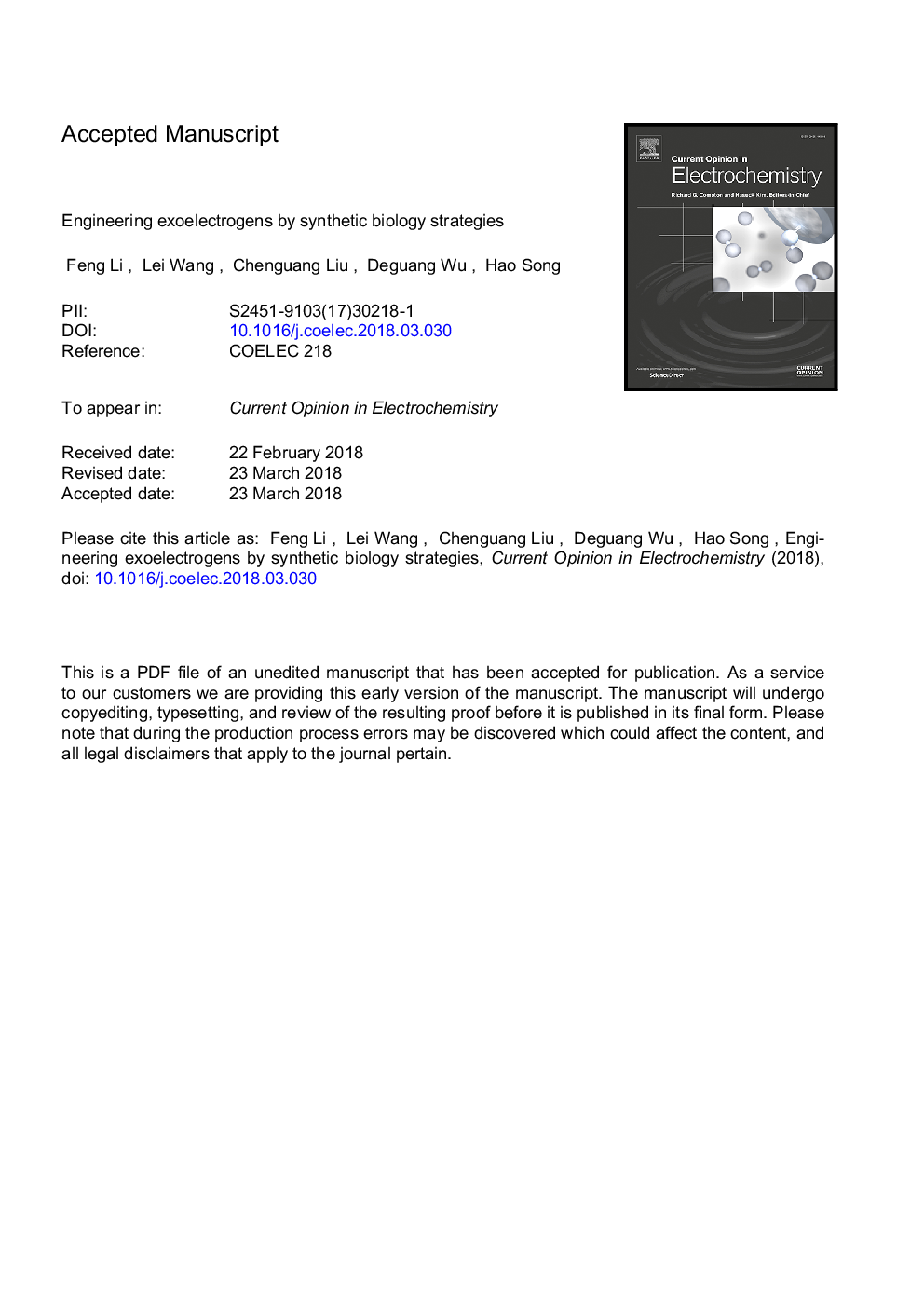| Article ID | Journal | Published Year | Pages | File Type |
|---|---|---|---|---|
| 8917452 | Current Opinion in Electrochemistry | 2018 | 24 Pages |
Abstract
Highly efficient extracellular electron transfer (EET) of electroactive bacteria is essential for economically viability of a diverse array of bioelectrochemical systems (BES) in environmental and energy fields. However, the EET efficiency of exoelectrogens remained a primary bottleneck. Synthetic biology is a research field that combines the investigative nature of biology with the constructive nature of engineering, which offers great prospects in rationally engineering to facilitate highly efficient EET of electroactive cells. In this review, we firstly summarized the recent advances in synthetic biology strategies to enhance the EET efficiency of exoelectrogens, which included broadening feedstock spectrum, strengthening intracellular electron generation, optimizing conductive cytochromes systems, promoting biosynthesis and secretion of electron shuttles, and constructing conductive biofilms. Genetic technologies in engineering exoelectrogens, in particular the genomic editing tools, were then reviewed. Lastly, a number of fundamental questions to be addressed in this field were proposed as a perspective for further boosting the EET efficiency and practical applications of BES systems.
Related Topics
Physical Sciences and Engineering
Chemistry
Electrochemistry
Authors
Li Feng, Wang Lei, Liu Chenguang, Wu Deguang, Song Hao,
